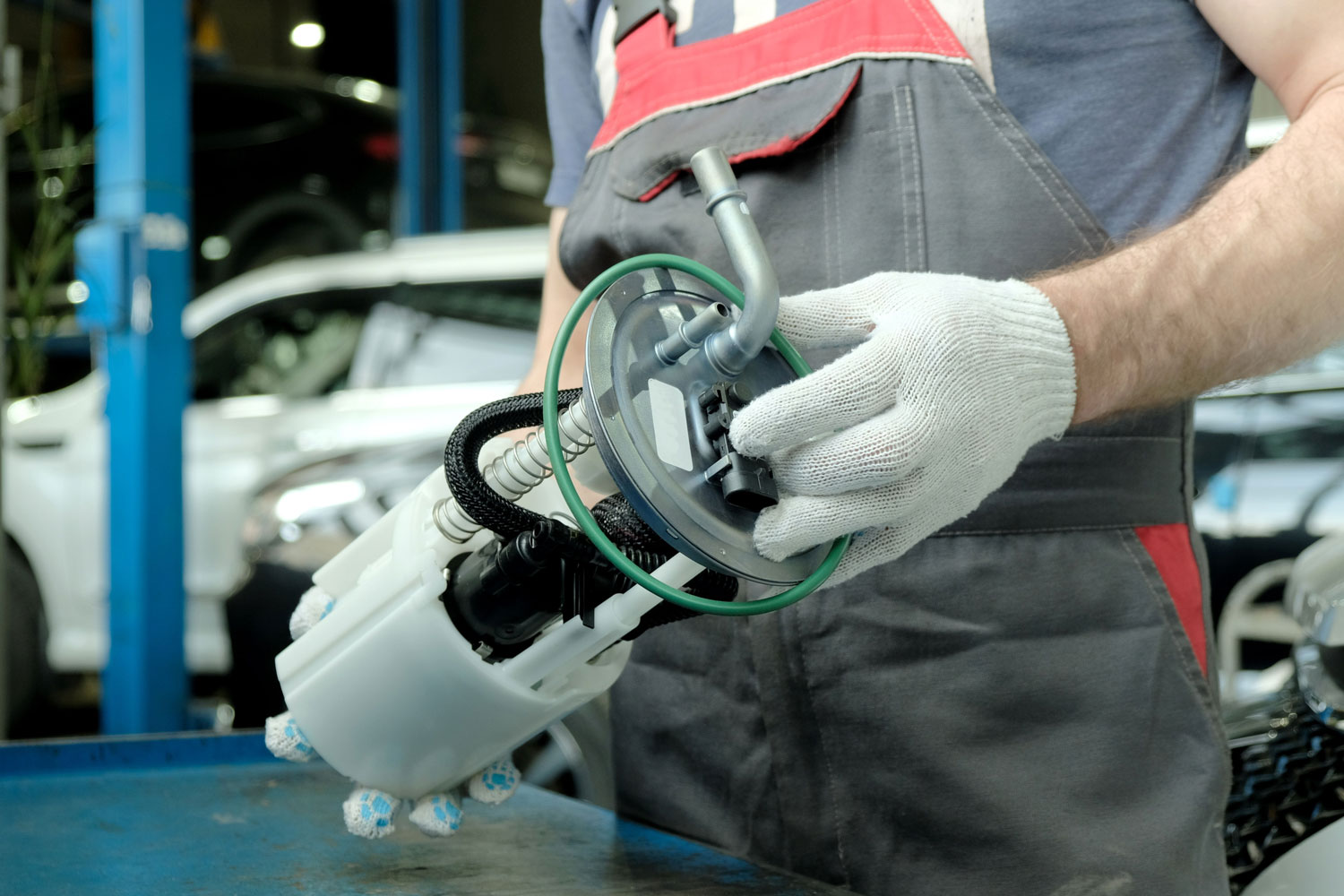Fuel Pump Replacement 101
Whether in-tank or external, a bad fuel pump can leave you stranded.
 Shutterstock
Shutterstock
If you're ever stranded on the side of the road after your vehicle sputters, surges, and then stalls, you may have a bad fuel pump.
This crucial part is responsible for making sure your engine receives precisely the right amount of gasoline at all times. As such, it's constantly at work behind the scenes. Over time, even the best-designed pumps can wear out, but they’ll often give you warning signs that you can act on before you end up with a car that won’t start.
Here's a look at how a fuel pump works, indications that it might need replacement, and how much that could cost you.
What Is a Fuel Pump?
Although a fuel pump is largely self-explanatory — it’s a device that moves fuel from a vehicle's tank into its engine by way of the fuel lines — there are a number of different designs on the market. Some fuel pumps are installed inside the tank itself while others are mounted externally. Some vehicles even make use of multiple pumps. Older cars often were outfitted with mechanical fuel pumps, but most modern pumps run on electricity. Mechanical fuel pumps function continuously as long as the engine is also running, while electric fuel pumps require only 12-volt current to operate.
Signs of a Bad Fuel Pump
Fuel pumps generally fail in one of two ways. The first is the most catastrophic and easiest to diagnose: The pump stops working completely, meaning that no gasoline is available to the engine. This means the engine cannot run and is likely to leave you stranded. If your engine cranks, but won’t start and you're confident it's not out of fuel, this could be the result of a bad fuel pump (or in some cases, a clogged fuel filter).
A fuel pump that’s on its way out but not yet completely inoperable could exhibit a range of symptoms. You might have difficulty starting your vehicle, as the pump can't provide the correct amount or pressure of fuel while the engine is turning over. The same fuel starvation can also lead to stalling and hesitation or loss of power and can even reduce your fuel mileage. Finally, a fuel pump that’s about to fail often becomes noisy, especially if it’s mounted externally. Listen for a whining or whirring sound that may be more noticeable the closer you are to the fuel tank.
How Much Does Fuel Pump Replacement Cost?
Fuel pumps are designed to provide a specific volume of fuel at a certain pressure that is tied to the vehicle's engine needs, so a replacement pump must be matched to the specifications of the vehicle into which it’s being installed. Some fuel pumps, especially high pressure units, can cost considerably more than others. The labor required to replace a pump will depend on how accessible it is (in-tank pumps can sometimes be a hassle to access). On average, the price for fuel pump replacement hovers around $1,000.
Written by humans.
Edited by humans.
 Benjamin Hunting
Benjamin HuntingBenjamin Hunting is a writer and podcast host who contributes to a number of newspapers, automotive magazines, and online publications. More than a decade into his career, he enjoys keeping the shiny side up during track days and always has one too many classic vehicle projects partially disassembled in his garage at any given time. Remember, if it's not leaking, it's probably empty.
Related articles
View more related articles